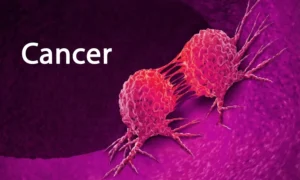Cancer: Its Causes, Prevention, And Homeopathic Approach
What is Cancer?
Cancer is a group of diseases in which abnormal cells grow uncontrollably and may invade or spread to other parts of the body. It can affect almost any tissue or organ.
Firstly, it occurs when abnormal cells grow uncontrollably in the body. Because of this rapid and unchecked growth, it can damage tissues and organs. Moreover, certain lifestyle habits such as smoking, poor diet, and lack of exercise significantly increase the risk. For example, tobacco use alone is responsible for a large percentage of lung cases.
On the other hand, adopting a healthy lifestyle can help reduce the risk. In addition, early detection through regular screenings improves treatment outcomes.
Therefore, awareness and education play a vital role in prevention. In conclusion, while remains a major health challenge, understanding its causes and taking preventive steps can make a meaningful difference.
Causes of Cancer
Cancer usually results from genetic mutations and environmental or lifestyle factors. Common causes include:
1. Genetic Factors cancer diseases
1. Family history
2. Inherited gene mutations (e.g., BRCA1, BRCA2)
2. Lifestyle Factors cancer diseases
1. Smoking and tobacco use
2. Alcohol abuse
3. Unhealthy diet (high fat, low fiber)
4. Obesity and physical inactivity
3. Environmental Factors
1. Radiation (e.g., UV rays, X-rays)
2. Exposure to carcinogens (asbestos, arsenic, benzene)
4. Infections cancer diseases
1. HPV (Cervical cancer)
2. Hepatitis B/C (Liver cancer)
3. H. pylori (Stomach cancer)
Prevention of cancer diseases:
Though not all are preventable, many can be avoided through the following measures:
Lifestyle Modifications of cancer
1. Quit smoking and avoid tobacco
2. Limit alcohol consumption
3. Eat a balanced diet (rich in fruits, vegetables, whole grains)
4. Exercise regularly
5. Maintain a healthy weight
Regular Screenings
1. Mammograms, Pap smears, colonoscopies
2. Early detection can lead to early treatment and better outcomes
Vaccination
1. HPV vaccine (prevents cervical cancer)
2. Hepatitis B vaccine (prevents liver )
Protection from Carcinogens
1. Avoid exposure to harmful chemicals
2. Use sunscreen to reduce UV exposure
Homeopathic Approach
Homeopathy does not claim to cure , especially in its advanced stages. However, it can be used as complementary supportive therapy to:
1 . Improve quality of life
2. Manage pain and side effects of chemotherapy/radiation
3. Strengthen immunity
4. Reduce anxiety and emotional stress
Commonly Used Homeopathic Medicines
(Note: Must be prescribed by a qualified homeopathic physician after full case analysis)
| Medicine | Indicated For |
|---|---|
| Carcinosin | Genetic predisposition, family history |
| Conium maculatum | Hard glandular swellings, slow-growing tumors |
| Phytolacca | Breast tumors, painful lumps |
| Thuja occidentalis | After effects of vaccination, glandular enlargement |
| Arsenicum album | Restlessness, anxiety, burning pain |
| Calcarea fluorica | Hard, stony tumors, glandular swellings |
| Hydrastis canadensis | Cancer with ulceration, especially in stomach or colon |
⚠️ Important Note
Homeopathy should not replace conventional cancer treatment (surgery, chemotherapy, radiation) but may be used alongside to support the patient.
Treatment must be individualized by a qualified homeopathic practitioner.
Avoid self-medication, especially in serious illnesses.
In conclusion : It is a complex and life-threatening disease that often arises from a combination of genetic, environmental, and lifestyle factors. However, with timely awareness, preventive measures such as healthy living, regular screenings, and vaccinations, many forms can be avoided or detected early.
While conventional medicine remains the primary mode of treatment, homeopathy can offer valuable support by helping manage symptoms, reducing side effects, and improving the overall quality of life.
Ultimately, a holistic and informed approach—combining prevention, early detection, and supportive care—can make a powerful impact in the fight against cancer.
See also :
Condylomata: Causes, Symptoms, and Treatment
Lipoma Top 5 Homeopathic Medicines
Contact Us :
+91 9939516088 (For appointments and inquiries)
Email Us :
hchomeopathy@gmail.com (We typically respond within 24 hours)
Clinic Address :
Healthcare Homeopathy
Lakhan chawak, station road,
Gopalganj , Bihar , INDIA – 226001

